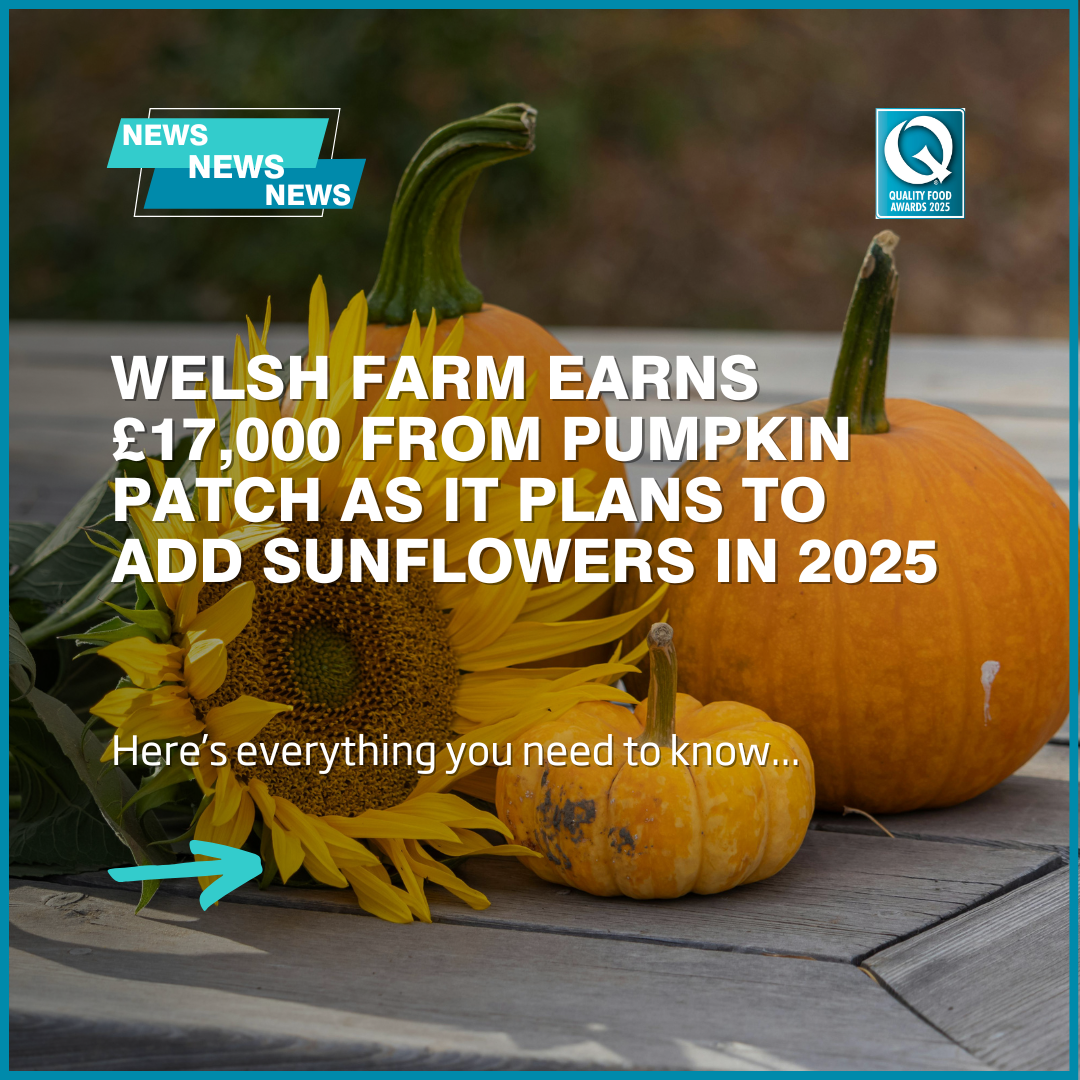
Welsh farm earns £17,000 from pumpkin patch as it plans to add sunflowers in 2025
Lower House Farm in Llanfair Discoed has generated £17,330 from a pumpkin pick-your-own venture, with plans for sunflower cultivation next year, supported by Farming Connect to diversify income amid challenges like weed control and wet weather.
Lower House Farm, an expansive 114-acre operation nestled beneath the Wentwood Hills in Llanfair Discoed, Monmouthshire, is breaking new ground by diversifying its agricultural offerings. Owned by Laura Pollock and Matt Brooks, the farm, traditionally focused on calf rearing and lamb production, has ventured into the realm of horticulture with a pick-your-own (PYO) pumpkin patch and plans for sunflower production in 2025.
The initiative has gained momentum since its inception, with the couple growing around 2,500 pumpkins in their second year of collaboration with Farming Connect, a government-supported initiative that provides advice and resources to Welsh farmers. By opening the farm to visitors over twelve days in October, they managed to generate an impressive £17,330 in profit from pumpkin sales and additional visitor experiences, such as on-site catering.
In the quest to ensure sustainability and profitability, Pollock and Brooks undertook trials to evaluate different techniques for growing pumpkins. These trials involved direct drilling, purchasing young plants, and propagating from seed, with the aim of determining the most effective approach for future seasons. Hannah Norman, a horticulture sector officer at Farming Connect, highlighted weeds as a significant challenge, particularly thistles that could threaten the establishment of smaller plants. Consequently, the couple decided to harvest their pumpkins earlier than planned to mitigate losses, although they did face some issues with rotting due to wet conditions.
The success of their current pumpkin patch has informed plans for next year, pushing the couple to incorporate more diverse varieties in a more visitor-friendly layout that allows easier access and management. Norman noted that their visitors are particularly fond of the more unusual pumpkin varieties, and charging per car has provided financial security while easing the pressure on patrons to purchase pumpkins.
This year also sees the introduction of sunflower production, part of a vision to further extend the PYO season and offer cut flower sales. The couple is currently assessing the suitability of different sunflower varieties to ensure they yield a positive return on investment. The move towards sunflower cultivation reflects a growing trend among farmers to enhance their business resilience by diversifying into niche markets.
The steps taken by Pollock and Brooks exemplify a broader initiative within Welsh agriculture, where farms are increasingly looking beyond traditional livestock and crop production to explore alternative revenue streams. With the backing of Farming Connect and the data gained from trial runs, Lower House Farm is well-positioned to develop these new ventures into a sustainable part of their farming model, fostering both economic growth and community engagement.
As the 2025 growing season approaches, the couple's foresight and strategic planning may well serve as a model for other farmers looking to diversify their operations while adapting to a rapidly changing agricultural landscape. With consumer interest in sustainable and local produce on the rise, the success of their PYO initiatives could inspire a new wave of farm-based tourism, blending the joy of rural experiences with the demand for locally sourced food.
In the end, as Pollock and Brooks venture confidently into their future, they are not only securing their livelihood but also adding value to the local community by creating opportunities for engagement and education about agriculture.